Towards Peace in the Sahel:
Strengthening the Role of Religious and Traditional Leaders, Women and Youth
Workshop | May 2024
Since 2012, the Sahel has been experiencing an unprecedented level of violence and socio-economic deterioration. Weak governance or the complete absence of the state, climate change, a high population growth rate, disorderly borders, and fragile or deteriorating security conditions have contributed to mass displacement,ents, as well as severe humanitarian conditions. The countries in the Sahel suffer from high levels of corruption, inability to collect taxes, and regulate or formalize economic activity; all of which have eroded economic development and living conditions. Despite challenges, community leaders and peacebuilders are working tirelessly on the ground to strengthen socio-economic development and promote social cohesion. A ‘whole of society’ approach is critical to address the challenges of region and support sustainable peace.
In collaboration with the Finnish Embassy to Senegal and the Ministry for Foreign Affairs of Finland, the Peacemakers Network convened a consultative workshop bringing together religious and traditional leaders, women, and youth from Niger, Mali, and Burkina Faso. Building upon a 2021 baseline study conducted by the Peacemakers Network, the workshop established a platform for key religious actors and other relevant stakeholders from these countries, aiming to strengthen the role of religious actors, women, and youth in preventing conflicts and building peace in the Sahel region. The workshop began with opening remarks from Finnish Special Envoy to the Sahel and West Africa, Ambassador Petri Salo.
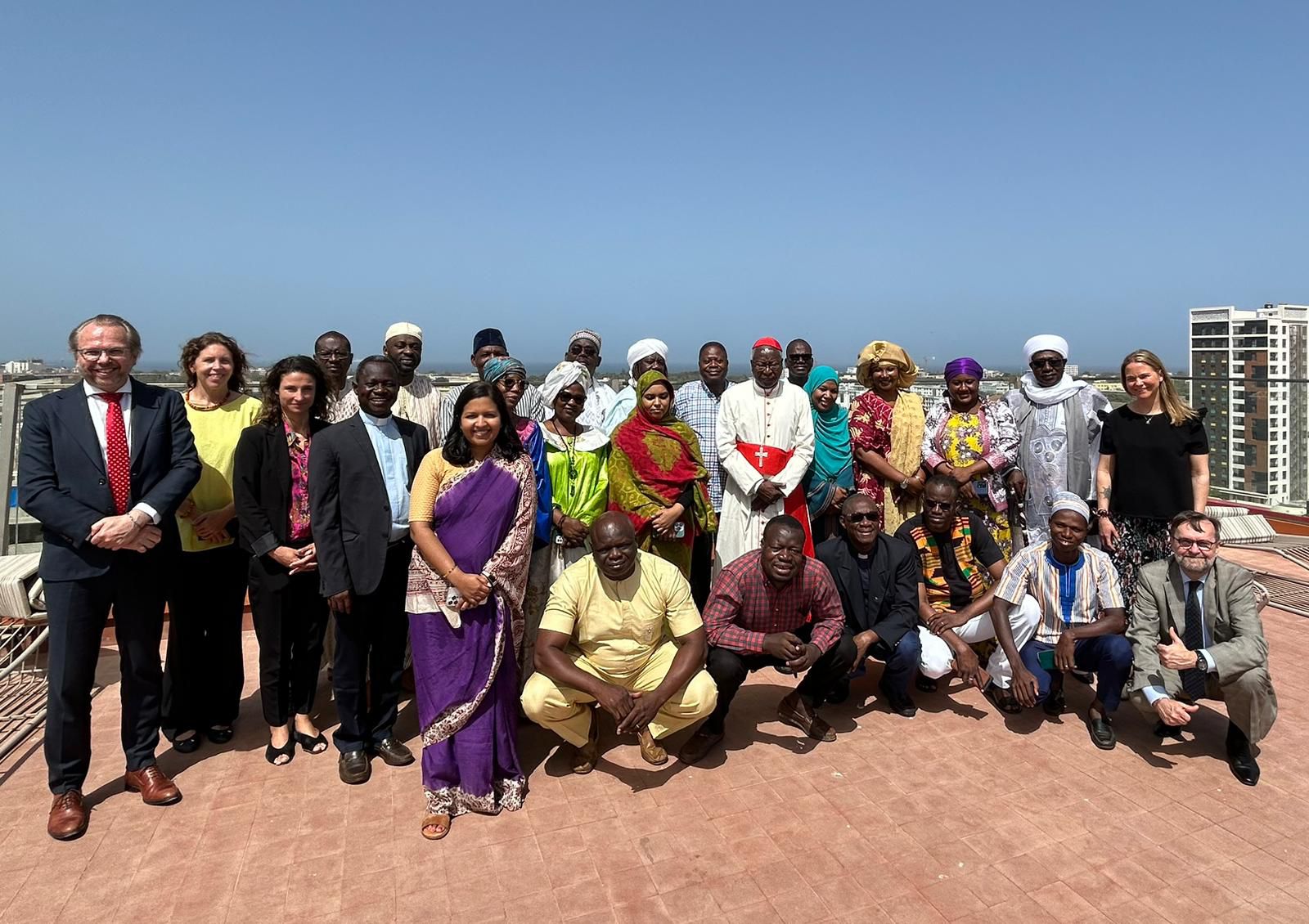
Representatives from the Ministry of Foreign Affairs Finland, the Peacemakers Network, and religious and traditional leaders and actors from Niger, Mali, and Burkina Faso share a group photo at the Sahel Workshop in Dakar, Senegal.
Over the years, there has been a growing recognition among the international humanitarian, development, and peace sectors on the critical role of religious and traditional actors in peacebuilding and conflict resolution. Religious and traditional actor’s peacebuilding initiatives have been instrumental in fragile contexts concerning countering violent extremism, implementing early warning systems, and mediating conflicts and disputes. These leaders have a unique connection to their communities and considerable legitimacy and influence at the local level, especially in remote areas where the state has a minimal presence.
On the first day of the workshop, participants explored the current situation in the region, the challenges, opportunities, and support needs that the religious and traditional actors face in their peace work in the respective countries. Despite ongoing violent extremism, political instability, and a humanitarian crisis, religious leaders have been at the forefront in peacebuilding, fostering unity, and preventing extremist recruitment.
Broadly, religious and traditional communities across the region are working to promote interfaith and intrafaith dialogue. This includes the efforts to translate religious and legal documents and texts into local languages to help combat misinformation. As mentioned by a religious leader present,
“there can be no peace for the nation without peace between religions. Peace is more sustainable through dialogue rather than through military force.”
Participants agreed that there is still a pressing need to explore social media for spreading peace narratives and to understand the implications of international actors in the region.
The second day delved deeper into the current situation and possibilities that women and youth face in peacebuilding in the Sahel. As highlighted by participants, to strengthen the inclusion of women and youth, it is essential to understand social, cultural, and religious dynamics and explore best practices for their reintegration to prevent recidivism [act of continuing to commit crimes even after having been punished]. There also needs to be intentional efforts with policy makers as well as religious and traditional leaders to make space to meaningfully include women and youth in leadership positions. The participants also worked on a comprehensive stakeholder mapping and looked into the existing coordination mechanisms in their respective contexts. Further, the religious and traditional leaders, women and youth also developed action plans and key advocacy messages.
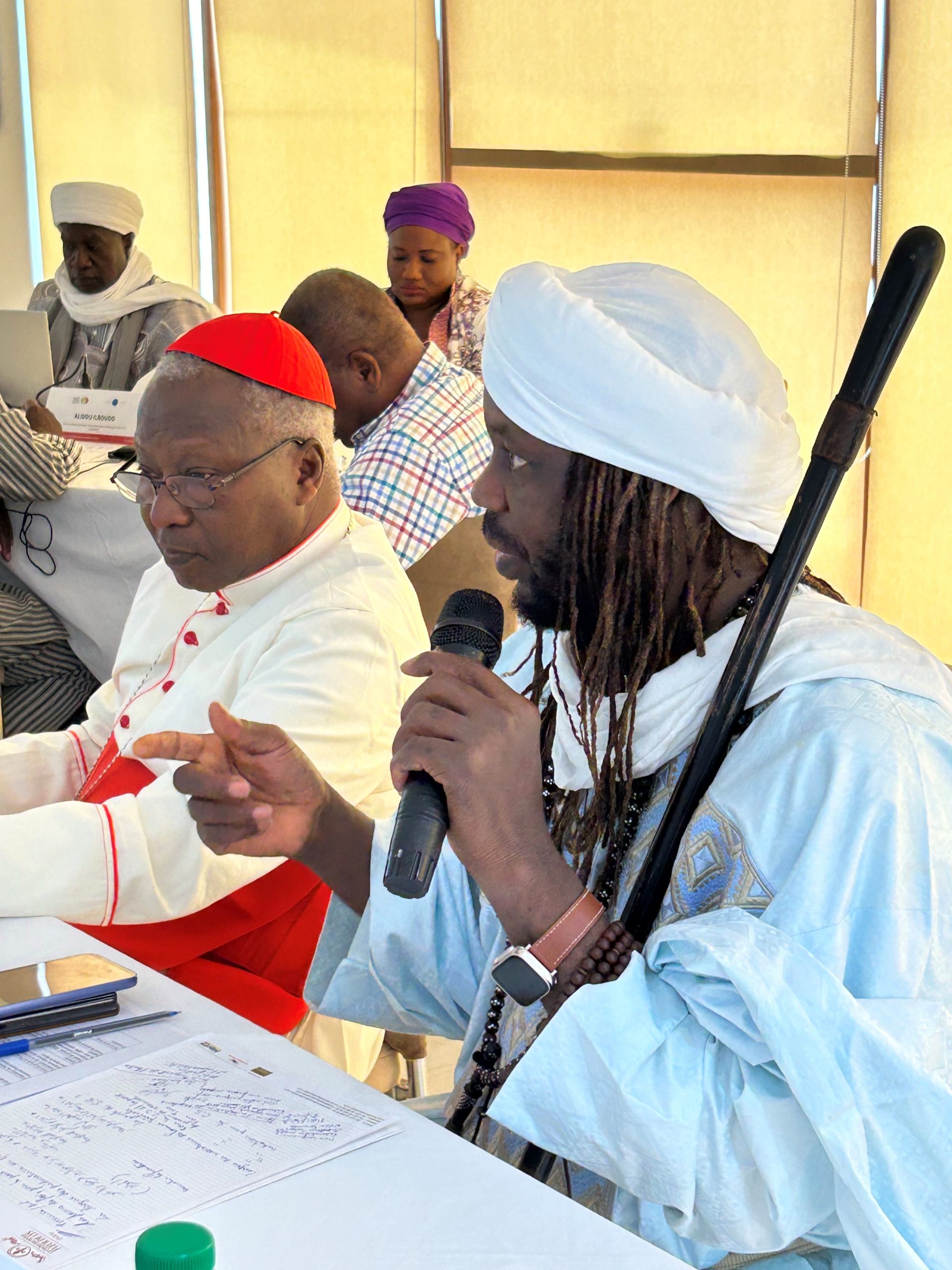
A participant sharing highlights and recommendations at the workshop.
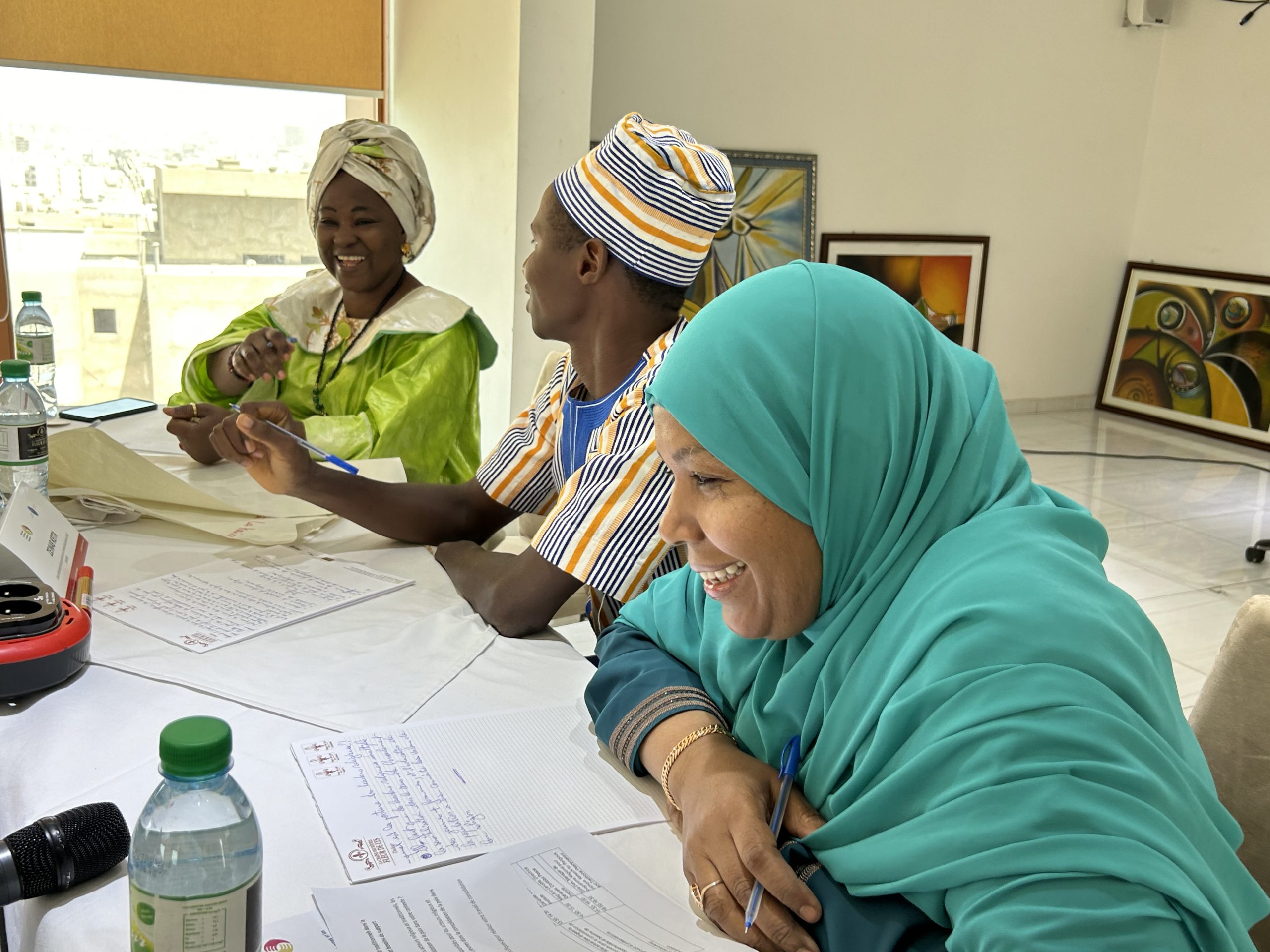
Participants engaging in workshop activities.
The second day delved deeper into the current situation and possibilities that women and youth face in peacebuilding in the Sahel. As highlighted by participants, to strengthen the inclusion of women and youth, it is essential to understand social, cultural, and religious dynamics and explore best practices for their reintegration to prevent recidivism. There also needs to be intentional efforts with policy makers as well as religious and traditional leaders to make space to meaningfully include women and youth in leadership positions. The participants also worked on a comprehensive stakeholder mapping and looked into the existing coordination mechanisms in their respective contexts. Further, the religious and traditional leaders, women and youth also developed action plans and key advocacy messages.
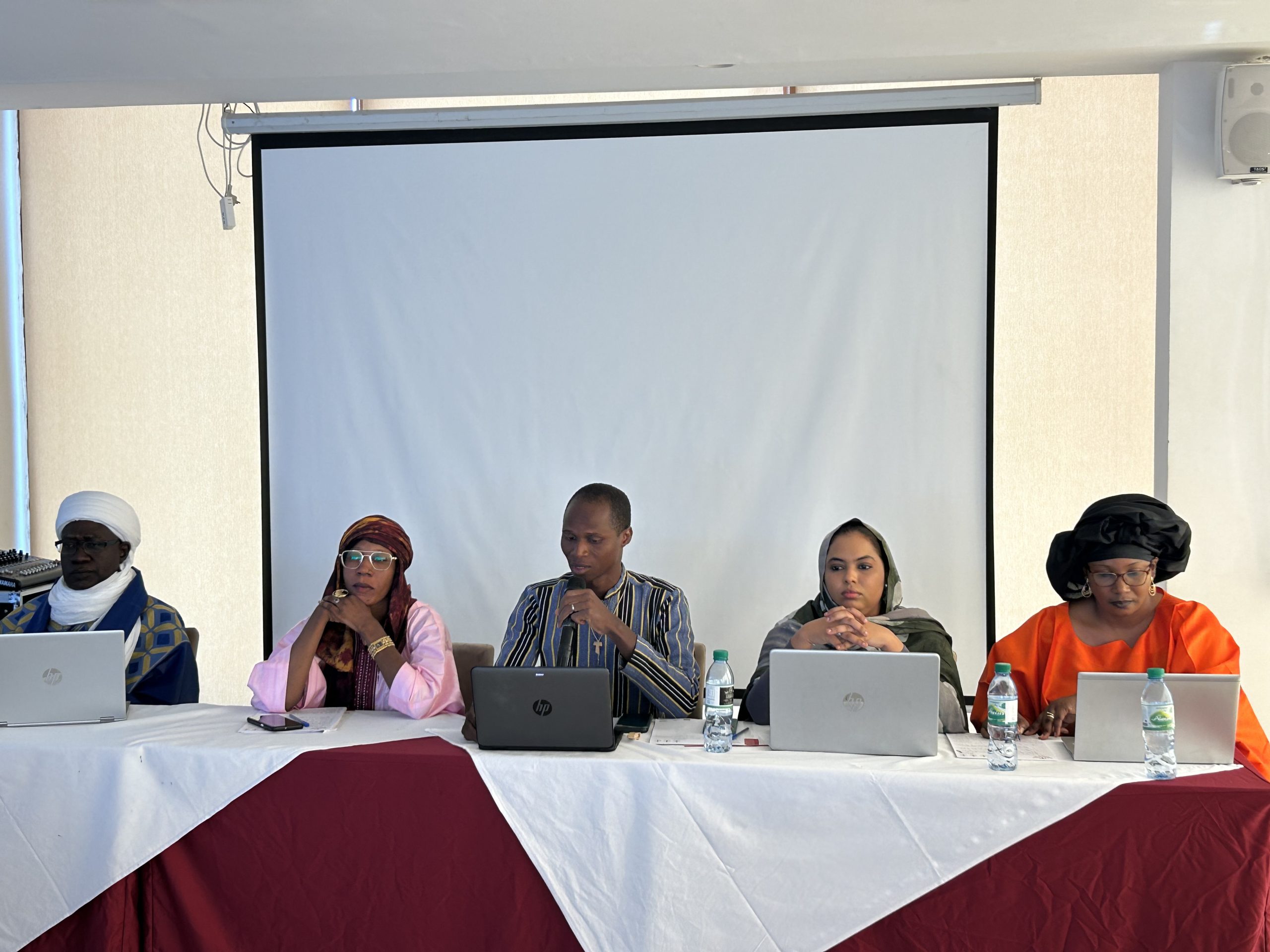
Panel on the role of women and youth in peacebuilding in the Sahel.
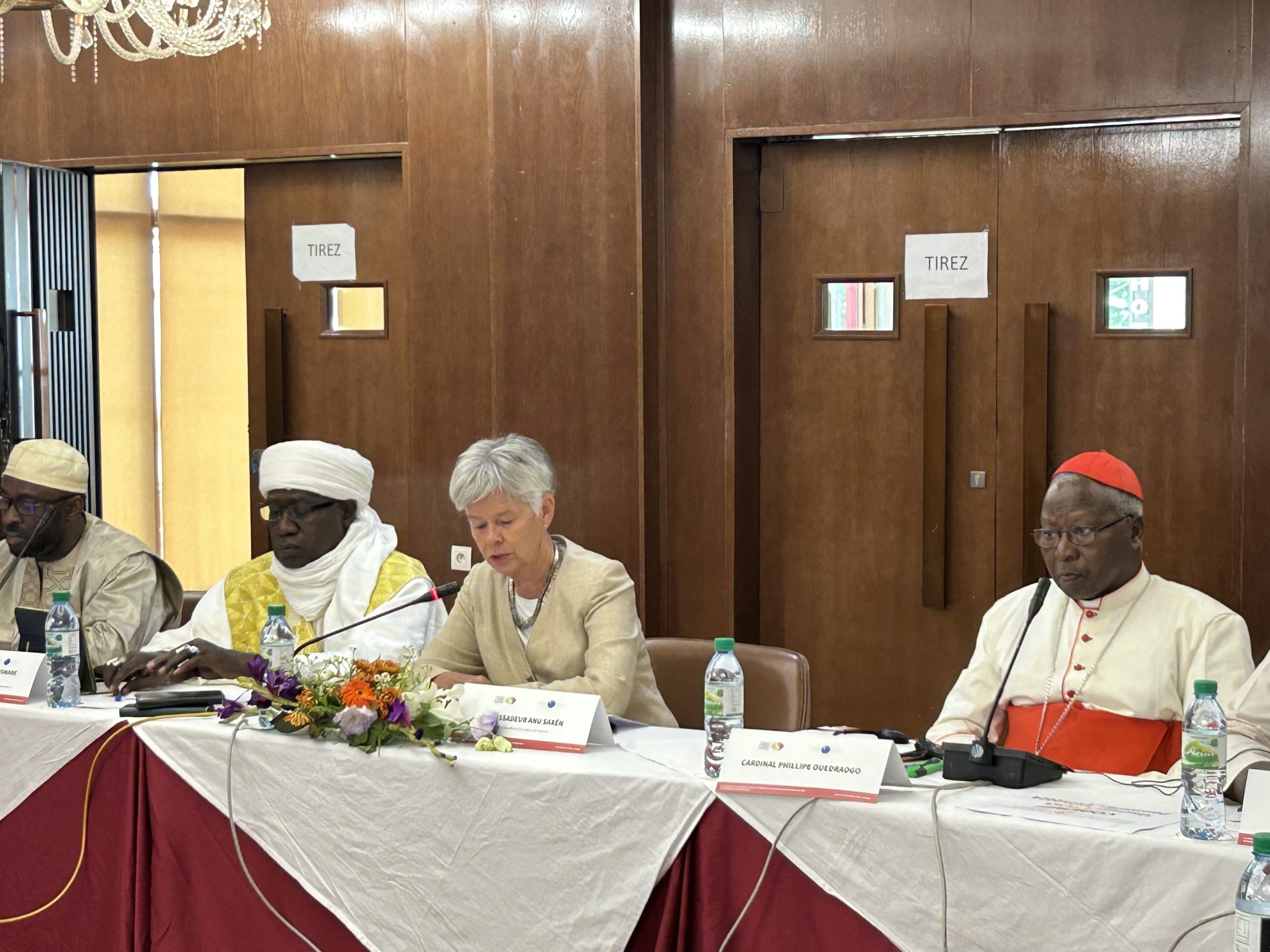
Remarks provided by Finnish Ambassador to Senegal, Ms. Anu Saxen.
On the last day, the Peacemakers Network together with MFA of Finland and the Finnish Embassy to Senegal organized an outreach advocacy session, providing an opportunity for the participants to share their key messages regarding the current realities in the Sahel, the challenges and opportunities as well as the support needs directly to the international community, donors, and other relevant stakeholders. Opening remarks were provided by Finnish Ambassador to Senegal, Ms. Anu Saxen and closing remarks provided by Finnish Ambassador for Peace Mediation, Mr. Jan Wahlberg. The event attracted broad interest within the actors in Dakar, convening international stakeholders working with peace in the Sahel.
Advocacy Messages from Religious and Traditional Leaders
Message 1: Strengthening existing customary, traditional and religious frameworks and establishing a regional consultation framework in order to develop active and continuous collaboration for effective conflict prevention and management in the Sahel.
Message 2: Create a synergy of action between religious leaders, women and young people for better conflict prevention and management at the national level.
Message 3: Strengthen the capacities of religious, traditional and customary leaders in conflict transformation in order to be able to better disseminate indigenous conflict prevention and management mechanisms among communities.
Advocacy Messages from Women
Message 1: Strengthen women’s capacities (female leadership, conflict prevention and management, mediation, prevention of violent extremism, resolution 1325) to participate in local conflict prevention and management mechanisms and effectively raise awareness at the local level.
Message 2: Support preachers in raising awareness among communities through the promotion of women’s rights based on religious principles and texts in order to facilitate the inclusion and integration of women and young people in decision-making bodies.
Message 3: Finance women-led socio-economic activities as this strengthens their empowerment and will contribute to combating exclusion and poverty, which are factors of vulnerability.
Message 4: Update existing studies on the state of women’s participation in peacebuilding in the central Sahel in order to identify current gaps, challenges and opportunities to develop relevant programs aimed at strengthening the active participation of women in peacebuilding.
Advocacy Messages from Youth
Message 1: Collaboration with technical and financial partners and youth and youth organizations to implement activities aimed at promoting reconciliation and social reintegration of former members of armed groups in the Sahel.
Message 2: Stakeholders including governments, international organizations (United Nations, INGOs, Foundations, etc.) and businesses support youth organizations in implementing integrated socio-economic resilience projects that include religious peace education in order to empower and equip them to resist and deconstruct radical discourses, thereby reducing their enlistment in extremist violence.
Message 3: Stakeholders including governments, international NGOs, the media and businesses develop partnerships with youth structures in order to support them technically and financially in their commitment to Peacebuilding (capacity building, sharing of experiences, dialogues, caravans, radio broadcasts, etc.) as this will fill the gaps in expertise and financial resources and will contribute to significantly increase the involvement of young people in leading inclusive and effective peace processes in the Sahel.
Follow the Network on social
